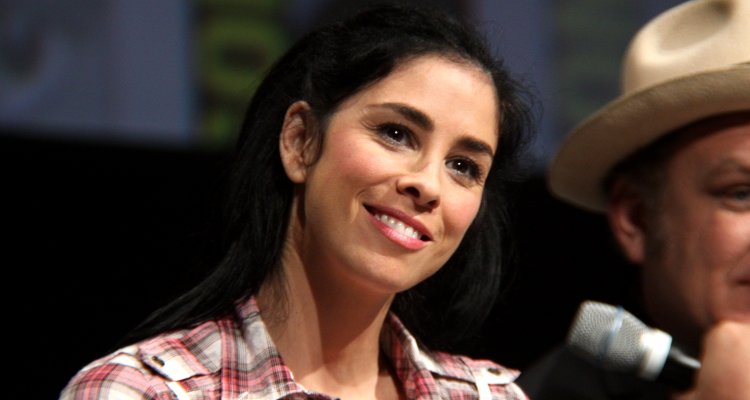Federal Judge Dismisses Substantial Portion of Sarah Silverman’s OpenAI Class-Action Suit


Sarah Silverman, who’s suing OpenAI for allegedly infringing upon her writing while training its AI offerings. Photo Credit: Gage Skidmore
In a decision that could have major implications for the music space, a federal court has dismissed a substantial portion of Sarah Silverman’s lawsuit against ChatGPT developer OpenAI.
The dismissal order just recently entered the media spotlight, after The Bedwetter author Silverman and others levied the class-action suit against the AI giant (or a collection of distinct-but-connected OpenAI entities, that is) back in July of 2023.
(This new order further extends to a “nearly identical” complaint against OpenAI from authors Paul Tremblay and Mona Awad, the latter of whom “voluntarily” withdrew last year.)
In brief – we covered the courtroom confrontation in detail over the summer – OpenAI is alleged to have ingested Silverman’s copyrighted writing without permission to “train” ChatGPT. The comedian, who’s also litigating against Meta, is specifically seeking relief for alleged copyright infringement, DMCA violations, and violations of California’s unfair-competition law.
August saw OpenAI move to dismiss all but one of the claims; in opting against targeting the plaintiffs’ direct infringement argument, the defendant said it intended to resolve the allegation “as a matter of law at a later stage of the case.”
Now, as mentioned at the outset, the court has granted the majority of this dismissal motion – deciding, however, to enable the unfair-practice component of the competition-law claim to proceed.
“Assuming the truth of Plaintiffs’ allegations – that Defendants used Plaintiffs’ copyrighted works to train their language models for commercial profit – the Court concludes that Defendants’ conduct may constitute an unfair practice,” District Judge Araceli Martínez-Olguín wrote. “Therefore, this portion of the UCL claim may proceed.”
But the plaintiffs’ additional unfair-competition claims didn’t fare as well, with the judge tossing arguments pertaining to the unlawful prong (Silverman and others didn’t demonstrate that OpenAI had “reproduced and distributed copies of their books,” per the legal text) and the fraudulent prong, to name some.
On the fraudulent-prong front, the court signaled that the associated claims cannot proceed because they “rest on a violation of the DMCA” – claims that have themselves been dismissed. In the judge’s view, the filing parties provided “no facts supporting” the assertion that the AI company intentionally removes the copyright management information (CMI) of books during the ChatGPT training process.
And even if this copyright management information’s removal was proven, the plaintiffs “have not shown how omitting CMI in the copies used in the training set gave” OpenAI “reasonable grounds to know that ChatGPT’s output would induce, enable, facilitate, or conceal infringement,” according to the document.
Rounding out the DMCA side and shifting to the adjacent vicarious infringement claim, Judge Martínez-Olguín rejected the idea that every ChatGPT output constitutes an infringing derivative work owing to copyrighted materials’ alleged role in the training process – mirroring a determination in a separate suit against Meta, as the Hollywood Reporter noted.
Also in the vicarious infringement arena, the court pointed to the plaintiffs’ perceived failure to show that ChatGPT responses “contain direct copies of the copyrighted books” or otherwise resemble the protected media at hand.
Of course, Silverman’s case is just one of a number of similar actions against OpenAI, which, along with fellow AI mainstays including Anthropic and Alphabet, is facing an FTC investigation.
Link to the source article – https://www.digitalmusicnews.com/2024/02/14/sarah-silverman-openai-lawsuit-partial-dismissal/
Recommended for you
-
FORE MIDI to USB Interface MIDI Adapter with Input&Output Connecting with Keyboard/Synthesizer for Editing&Recording Track work with Windows/Mac OS for Studio USB 2.0 Color Black – 6.5Ft
$19,99 Buy From Amazon -
LTGEM Hard Case for Akai Professional MPK Mini Plus – USB MIDI Keyboard Controller – Travel Protective Carrying Storage Bag (Black+Red)
$41,99 Buy From Amazon -
GLARRY GP Series Full Size Electric Bass Guitar 4 String Beginner Kit Canadian Maple Fingerboard with Cable, Strap, Bag and Accessories(Blue)
$89,95 Buy From Amazon -
Liyafy A Sets of 16 Lyre Harp Strings Replacement Metal String for Lyre Harp
$8,99 Buy From Amazon -
Arabian World Spirit – Large unique WAVE/Kontakt Studio Samples/Loops Library.
$14,99 Buy From Amazon -
JBL Professional 305P MkII 5-Inch 2-Way Powered, Active Monitor Speakers for Near Field Music Production, Studio Monitor, Desktop Computer, Hi-Fi Audio. Sold as Pair, Black
$238,00 Buy From Amazon -
D’Addario Guitar Strings – Acoustic Guitar Strings – 80/20 Bronze – For 6 String Guitar – Deep, Bright, Projecting Tone – EJ11 – Light, 12-53(Pack of 1)
$10,70 Buy From Amazon -
Focusrite Scarlett Solo 2×2 USB Audio Interface Full Studio Bundle with Creative Music Production Software Kit
$249,99 Buy From Amazon













Responses